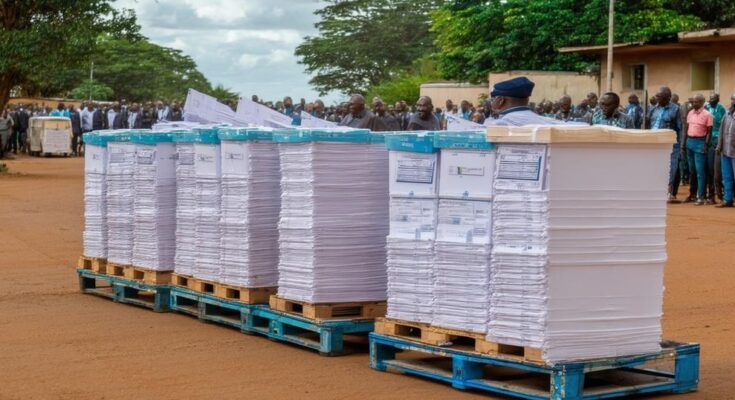Daniel Chapo of the ruling Frelimo party has been declared the winner of Mozambique’s presidential election with over 70 percent of the vote. His main opponent, Venancio Mondlane, accused Frelimo of election fraud and has called for protests. The election results are controversial, with reports of violence and electoral misconduct overshadowing the process.
The recent presidential election in Mozambique has declared the ruling Frelimo party’s candidate, Daniel Chapo, the victor, receiving over 70 percent of the vote, as reported by the National Election Commission (CNE). Chapo, representing Frelimo, which has held power for nearly fifty years, will officially assume the presidency in January, marking him as the first president born after Mozambique’s independence from Portugal in 1975. His primary opponent, Venancio Mondlane, an independent candidate backed by the Podemos party, garnered over 20 percent of the votes. Mondlane has alleged electoral fraud and manipulation, claiming that he was the true winner and organizing protests to challenge the election outcome. The third-place candidate, Ossufo Momade from the opposition party Renamo, received more than five percent. The election has been marred by controversy, with reports of violence against opposition officials and claims of electoral malpractice. EU election observers noted instances of restricted access to polling stations and irregularities in vote counting. These events have heightened tensions in a nation already on edge following the killing of opposition advisor Elvino Dias, an act condemned by Frelimo as a “macabre act.” In response to the unfolding situation, police have used teargas to disperse protests sparked by allegations of election fraud.
In Mozambique, the political landscape has been largely dominated by the Frelimo party since the nation gained independence from Portuguese colonial rule in 1975. The ongoing rivalry with the opposition party, Renamo, has a historical context rooted in a devastating civil war that left significant scars. Allegations of electoral misconduct have been commonplace in previous elections, and the current electoral process has drawn considerable scrutiny from national and international observers alike. The CNE, responsible for overseeing elections, has faced challenges in ensuring transparency and fairness in the electoral process. The political tension surrounding the recent presidential election highlights the ongoing struggles for political power and representation within Mozambique, especially amidst rising civil unrest due to unresolved grievances over electoral integrity.
In summary, the recent presidential election in Mozambique has resulted in the ruling Frelimo party claiming victory amidst serious allegations of electoral fraud. Daniel Chapo’s win marks a significant continuation of Frelimo’s long-standing power in the country. However, ongoing protests and claims from the opposition raise important questions about the legitimacy of the electoral process. With the situation remaining volatile, the coming months will be crucial in determining the stability of Mozambique’s political environment and the responses from both the governing party and opposition factions.
Original Source: www.aljazeera.com




